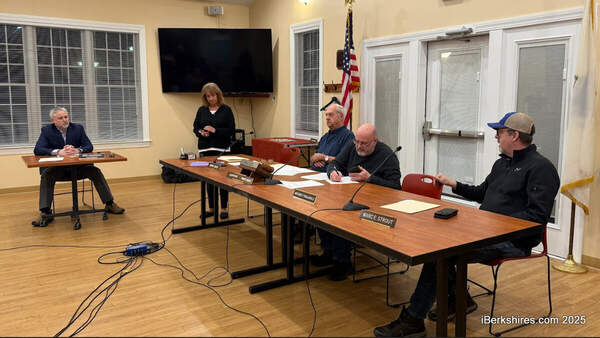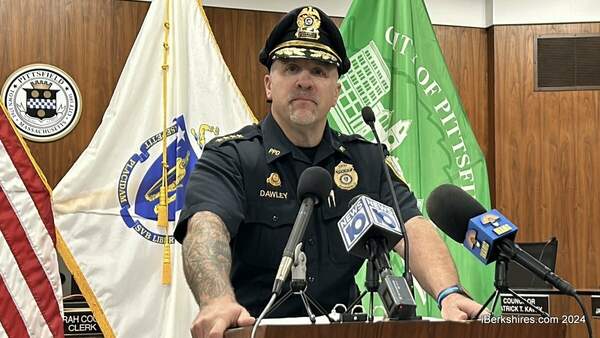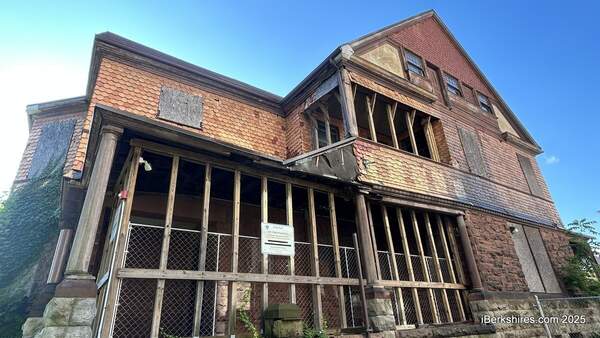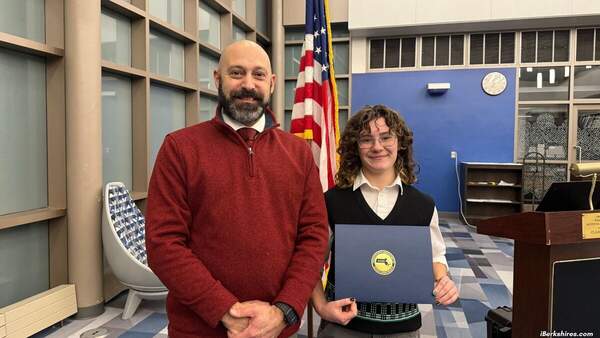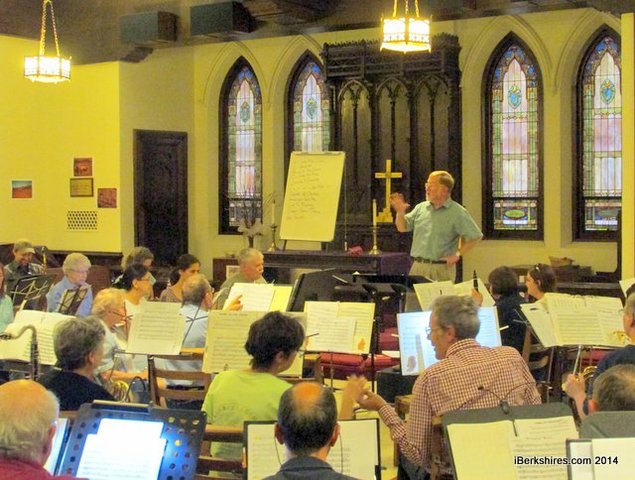
Longtime Drury Band Leader To Conduct Eagles Band
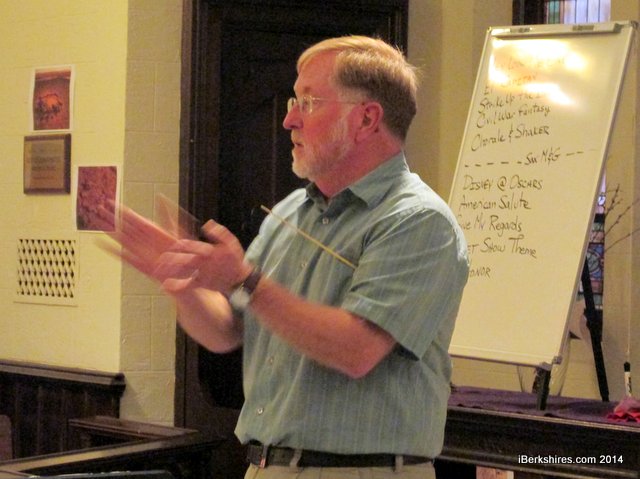 Carl Jenkins has been appointed the principal conductor of the Eagles Band. Carl Jenkins has been appointed the principal conductor of the Eagles Band. |
PITTSFIELD, Mass. — When the Eagles Band was looking for a new principal conductor, they heard a former Drury High School teacher was interested.
After a 30-minute rehearsal with him, the entire 66-member band was unanimous — "hire him now."
And they did.
Carl Jenkins, who headed Drury's band program for 36 years, is now the principal conductor of the Pittsfield-based concert band.
"It is an amazing group," Jenkins said on Monday before rehearsal. "The thing that has really struck me, seeing as I've been affiliated for barely a month, is how dedicated these people are. They just really want to play."
Jenkins is now continuing the story of the 78-year-old band. Formed in 1936 by the American Legion, the Eagles Band started as a military marching band. The founders were reigniting the 390th Field Artillery Band that was in existence in 1918 and sponsored by the U.S. government.
They continued on that path until the 1990s, when the number of band members began to shrink.
"It had almost collapsed. It was down to like 13 members. But, a couple of the members were really strong in wanting to keep it going and they kept pushing for it," said Deanna Fraher, who is a member of the band's management team.
"We changed the direction from being a marching, military-style band to becoming a concert band. And with that, we've been able to grow. There may have been 25 people in the band when I joined, and when we played at the Colonial last year, we were up to 66."
At the end of last year, the principal conductor retired and a search committee started at the beginning of the year looking for the next.
And, it didn't take long. Some of the members knew Jenkins and knew he might be interested. They brought him in for an audition.
"Drury High School has one of the finest bands in the county, for years. He had recognition throughout the country. His conductorship is really great. We're lucky to get him," said Dick Paul, another member of the band's management team.
Jenkins took over in April and has picked out the music for this summer's series of concerts, which kick off on June 25 at Springside Park. After spending more than 30 years teaching high schoolers, he says he is enjoying the change in pace in heading the group of musicians in the Eagles Band.
"The players are better than kids you would encounter teaching in high school. In high school there are kids who may have been playing their instrument for only a year or two," he said.
Like the Eagles Band, Jenkins started his music career based in the military. For three years after college, he was in the West Point Band. When that ended in 1973, he found a job in North Adams and moved to the Berkshires.
He didn't leave Drury High School until his retirement in 2009.
"I've been affiliated with Williams College since I got here in 1973, teaching private oboe lessons, and I am the principal oboist for the Berkshire Symphony," he added.
Now retired, Jenkins said he has the time to head the Eagles Band for the 10 or so concerts in the summer and three over the winter. The band travels all over the region and is paid for by the performances, donations and some grant money.
"It's something I thought I'd do and I'd thought I could do. It wasn't something beneath me or way so far above me that it was out of my league. I thought it would be a good match and I was anxious to do it and see where we go with it," Jenkins said. "My goal is to get the band to sound better and to have a good time."
Kicking off his first summer, he panned through an array of programs from previous years to choose the music. He says the selection was chosen for the typical audience of the outdoor summer concerts. But, he did keep it fresh for the musicians.
"I was picking music that I thought would be appropriate for the audience we get.... A lot of it is recognizable. Things from Broadway shows, TV themes, movies, patriotic marches," Jenkins said. "And, I tried to pick a handful of what I thought would be challenges for the band so we weren't just playing things that they already know."
And so far, he has gotten a positive reception from those whom he is now leading. But Jenkins will say it is the band that is making it easy for him.
"I come in and I get to conduct. This is pretty cool. I've been enjoying it," he said, comparing it to the days in the high school where he served as not only the conductor but put up chairs, printed programs, advertising. "It is just a really friendly group."
Tags: band, concerts,

